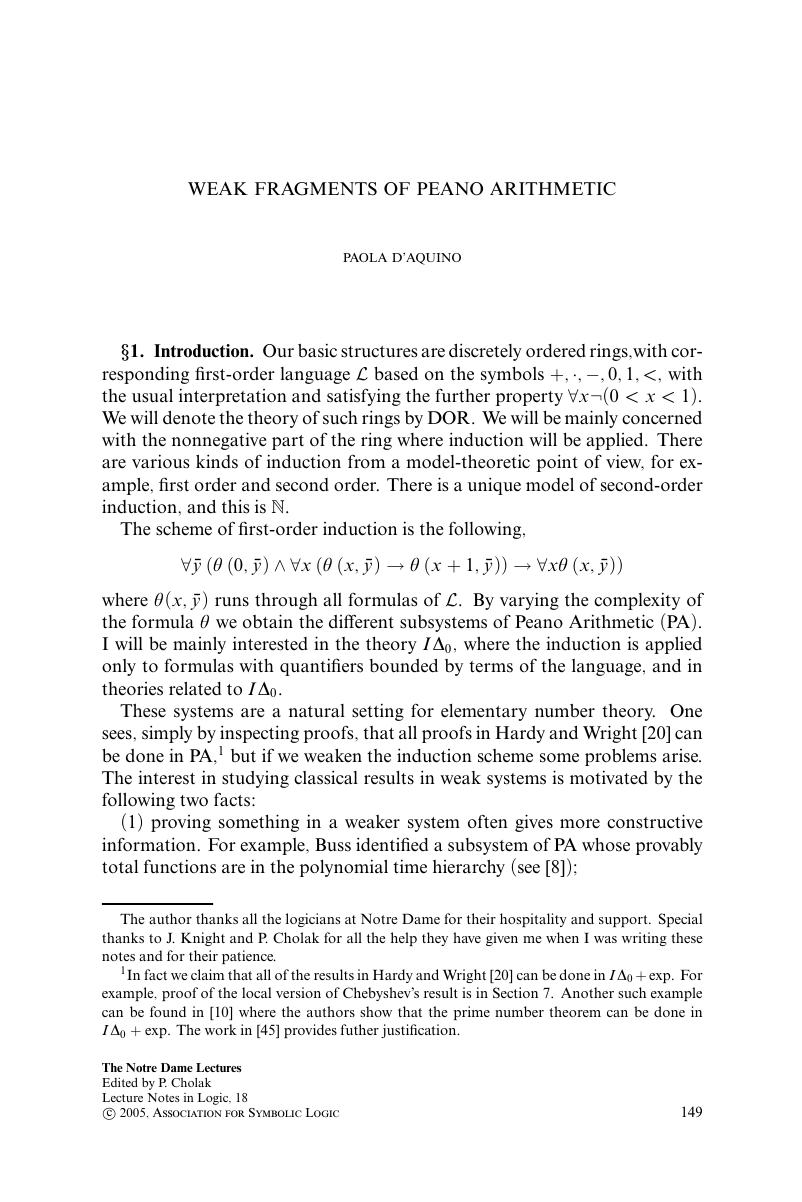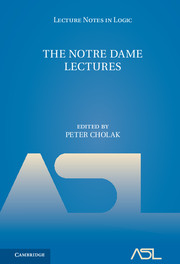Book contents
- Frontmatter
- Preface
- Contents
- Countable models and the theory of Borel equivalence relations
- Index for Countablemodels and the theory of Borel equivalence relations
- Model theory of difference fields
- Index forModel theory of difference fields
- Some computability-theoretic aspects of reals and randomness
- Index for Some computability-theoretic aspects of reals and randomness
- Weak fragments of Peano Arithmetic
- Index forWeak fragments of Peano Arithmetic
- References
Weak fragments of Peano Arithmetic
Published online by Cambridge University Press: 30 March 2017
- Frontmatter
- Preface
- Contents
- Countable models and the theory of Borel equivalence relations
- Index for Countablemodels and the theory of Borel equivalence relations
- Model theory of difference fields
- Index forModel theory of difference fields
- Some computability-theoretic aspects of reals and randomness
- Index for Some computability-theoretic aspects of reals and randomness
- Weak fragments of Peano Arithmetic
- Index forWeak fragments of Peano Arithmetic
- References
Summary

- Type
- Chapter
- Information
- The Notre Dame Lectures , pp. 149 - 184Publisher: Cambridge University PressPrint publication year: 2005
References
- 2
- Cited by



